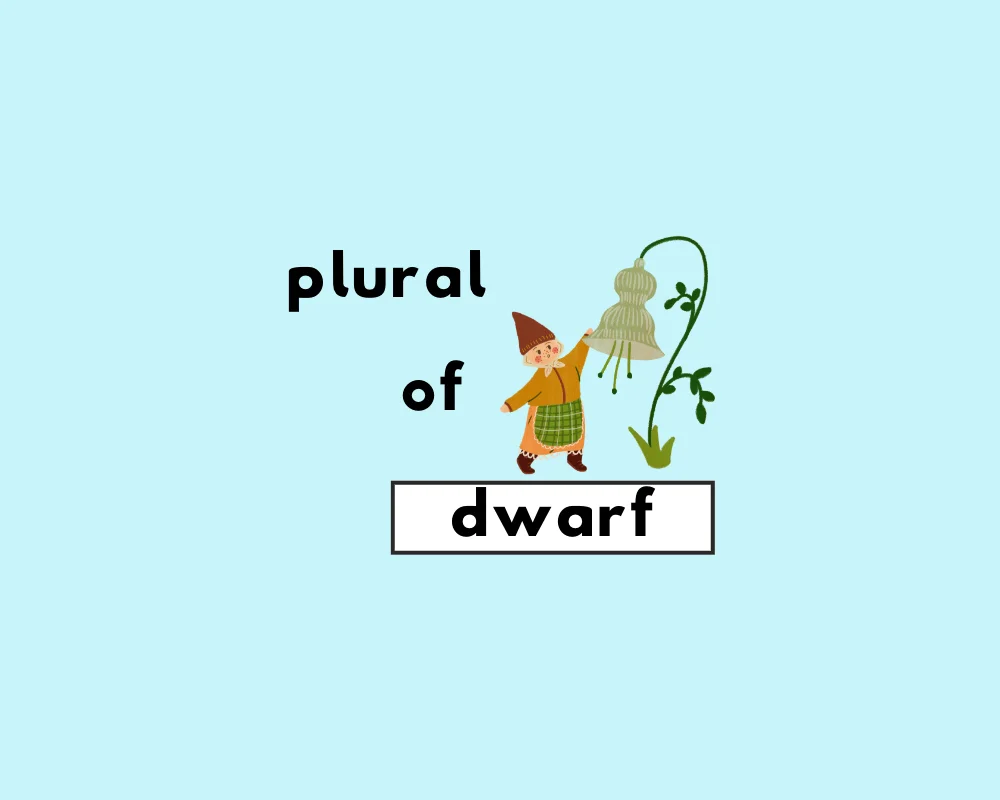Is “dwarf” singular or plural?
Dwarf is singular. Dwarfs is the more frequently used plural. Dwarves became a common variant on dwarfs because of JRR Tolkien and his Lord of the Rings series, (he refers to the Middle Earth species as dwarves).
A single dwarf guarded the entrance to the mine.
In Tolkien’s stories, the dwarves lived under the mountains.
Several dwarf were exploring the treasure hoard.
The old tales describe clever dwarfs who built intricate machines.
The consensus is that when referring to mythical, fantastical creatures, dwarves is the accepted plural. Otherwise, it’s probably best to avoid using the term dwarf altogether (especially in reference to non-mythical, real-life individuals.) This is all too fascinating to stop now. Keep reading to learn more.
What’s the definition of “dwarf”?
A dwarf, or someone affected by dwarfism, according to the Mayo Clinic, have “short stature that results from a genetic or medical condition. Dwarfism is generally defined as an adult height of 4 feet 10 inches (147 centimeters) or less. The average adult height among people with dwarfism is 4 feet (122 cm).
Is dwarf considered rude?
Yes—when referring to people that have the condition of dwarfism, it can be offensive to refer to someone as a dwarf. Dwarfism is a medical condition that refers to individuals that have been growth-affected due to a genetic disorder called achondroplasia which “affects a protein in the body called the fibroblast growth factor receptor.” The Mayo Clinic says, on using terms such as dwarf:
Some people prefer the term “short stature” or “little people” rather than “dwarf” or “dwarfism.” So it’s important to be sensitive to the preference of someone who has this disorder. Short stature disorders do not include familial short stature — short height that’s considered a normal variation with normal bone development.
Nouns that end in -f/-fe and -ves/-s
Words like knife, wife, shelf, elf, (the list goes on, literally: wharf, thief, hoof, calf, half, self, wolf) the pattern is that -f/-fe in singular is replaced with -ves as a plural. Dwarves, technically speaking, would be the plural of dwarf, if English were consistent as a language.
It could be that the term dwarf (to refer to human beings) is a pejorative, and so there’s no technical correct/incorrect plural form. Still, replacing the sibilant -f/-fe in the singular case with –ves in the plural remains the norm. Dwarfs as the plural is an anomaly, though not the only one of its kind.
Hoofs, along with hooves, is an accepted plural form of a hoof; roofs is the plural of roof, cliff becomes cliffs. In other words, be sure to check whether the plural is atypical (and switches to “-ves”), or simply adds an ‘s’ like most nouns do.
| singular | plural |
|---|---|
| dwarf | dwarves |
| elf | elves |
| shelf | shelves |
| thief | thieves (or thiefs) |
| wharf | wharves |
| hoof | hooves |
The plural of “dwarf” when referring to mythical creatures, associate it with the word “elves,” as both words have the plural form ending in “-ves.”.
Examples of “dwarf” in sentences
1. The evil enchantress turned the small dwarf into an even smaller mouse.
2. Without a step stool, it was difficult for the dwarf to get anything done around the cabin.
3. Each dwarf took a keen liking to Snow White.
4. Although he was small, the dwarf could use magic to solve most of his problems.
5. The tiny dwarf worked in the coal mine all day.
Examples of “dwarves” in sentences
1. The dwarves of yore made mighty spells,
2. The dwarves no more shall suffer wrong. (from The Hobbit (Dwarves Battle Song) JRR Tolkien)
3. “All dwarfs have beards and wear up to twelve layers of clothing. Gender is more or less optional.” (Terry Pratchett, Guards! Guards!)
4. “Far, far below the deepest delving of the dwarves, the world is gnawed by nameless things.”
5. “Dogs and dwarves topped his list, both equally despised for having so much in common—each was short, vicious, and inexcusably hairy.” Michael J. Sullivan, The Death of Dulgath
Synonyms of dwarf
- petite
- mini
- miniature
- short
- short stature
- small
- undersized
- stunted
Synonyms for dwarf as a mythical/fantasy creature
- gnome
- goblin
- hobgoblin
- troll
- leprechaun
- elf
- imp
- sprite
Origin of dwarf
From etymonline on dwarf:
Very short human being, person much below ordinary stature, whether of proportionate parts or not,” also “supernatural being of subhuman size,” from Proto-Germanic dweraz (source also of Old Frisian dwerch, Old Saxon dwerg, Old High German twerg, German Zwerg, Old Norse dvergr), perhaps from PIE *dhwergwhos “something tiny,” but with no established cognates outside Germanic.
What’s the difference between they’re, their, and there?
Work Sheet
What is the singular form of the noun “dwarf”?
According to the blog post, which plural form of “dwarf” is more frequently used?
Which author is credited with popularizing the plural form “dwarves” for mythical beings?
When referring to mythical or fantastical creatures, what is the generally accepted plural form mentioned in the post?
The blog post advises sensitivity and suggests that using the term “dwarf” for non-mythical, real individuals can be considered:
A single guarded the entrance to the mine.
In Tolkien’s stories, the lived under the mountains.
The post notes that when referring to people with dwarfism, some prefer terms like “short stature” instead of .
The old tales often describe clever who built intricate machines.
The post indicates that using the singular form in a plural context, such as “Several were exploring,” is incorrect.
Frequently Asked Questions
What’s the singular of dwarf?
+
What’s the plural of dwarf?
+
Why use dwarves as plural?
+
When to use the plural dwarves?
+
Is calling someone a dwarf rude?
+
Yash, D. "What’s the Plural of Dwarf?." Grammarflex, Jun 8, 2025, https://www.grammarflex.com/whats-the-plural-of-dwarf/.
Sources
-
Definition of dwarfism.











